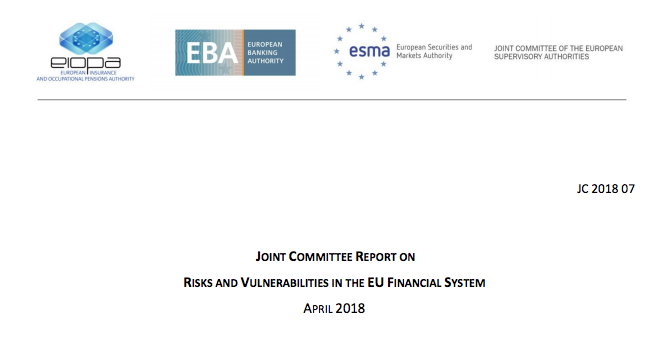The latest report on risks and vulnerabilities by the Joint Committee of the European Supervisory Authorities (ESAs) shows that the securities, banking and insurance sectors in the European Union (EU) face multiple risks. And, although this report is focussed on the EU, a number of risks and vulnerabilities also apply to the Australian market.
The latest ESA report outlines the following risks as potential sources of instability:
- Uncertainties around the terms of the UK's withdrawal from the EU;
- Cyber attacks; and
- Sudden repricing of risk premia as witnessed by the recent spike in volatility and associated market corrections.
The ESA report also raises awareness for risks related to climate change and the transition to a lower-carbon economy.
Some of the key points from the report are:
Brexit: the ESAs recommend that EU financial institutions and their counterparties, as well as investors and retail consumers, consider timely mitigation actions to prepare for the UK's withdrawal from the EU – including possible relocations and actions to address contract continuity risks;
Cyber security: the ESAs encourage financial institutions to improve fragile IT systems, and explore inherent risks to information security, connectivity and outsourcing. To support this, the ESAs will continue addressing cyber risks for securities, banking and insurance markets and monitor firms' use of cloud computing and potential build-up of cyber risks; and
Climate change: the ESAs recommend that financial institutions consider sustainability risk in their governance and risk management frameworks; should develop responsible, sustainable financial products; and supervisors should enhance their analysis of potential risks related to climate change for the financial sector and financial stability.





















